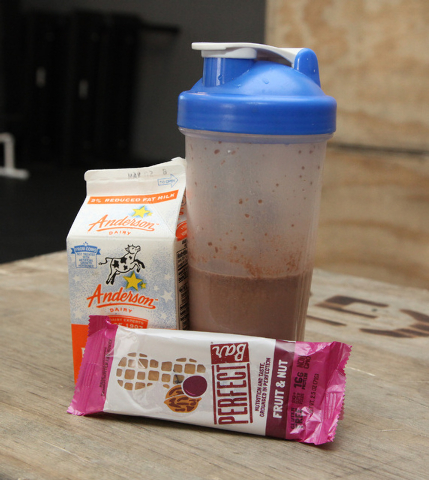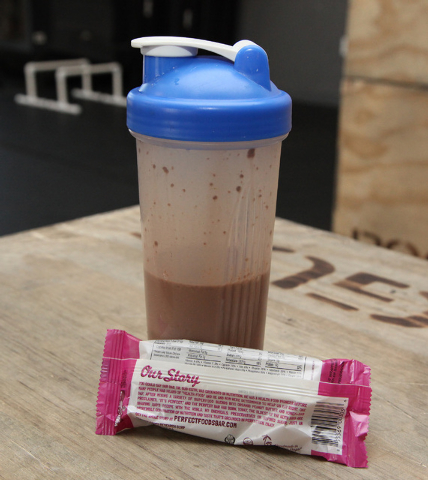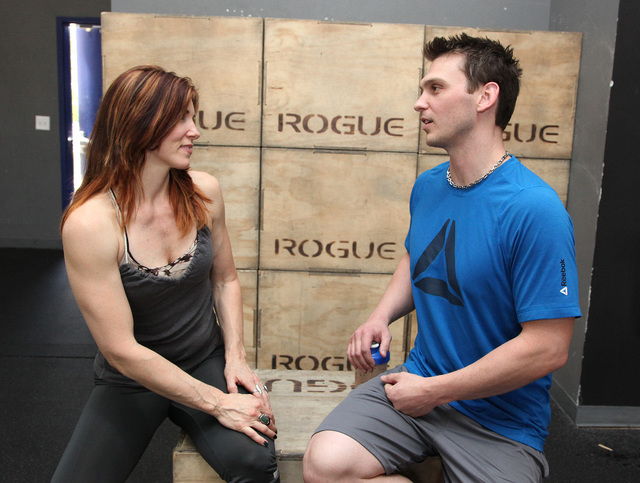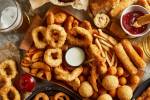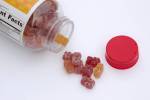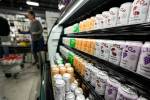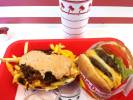Before you hoist weights, fuel yourself right at plate
Sometimes it is a struggle to get people to eat more healthfully. Your trainer or gym buddies can only be with you a fraction of the time. They can’t always be around to encourage you to make better, consistent dietary decisions.
As a trainer, it can be discouraging when people show up for their workout session on an empty stomach or fueled incorrectly. This means I can’t push them like I planned and their energy could plummet before the warm-up is over.
Working out on an empty stomach can cause a person to become exhausted very fast. One minute they are going fine and the next they have to sit and can’t seem to catch their breath. They may feel faint and even pass out.
Conversely, if a person eats a big meal right before working out, the result is just as bad. The body is trying to digest the meal instead of concentrating on movements. Depending on how strenuous the exercise, the body may choose to forgo digestion and throw your food right back at you. Sometimes you make it to the bathroom; other times you pray there is a trash can nearby.
Then there is the eating foods of low nutritional value. They can take longer to digest and blunt the sharpness of your performance. Eating a large greasy meal and washing it down with a sugary beverage is not the best way to fuel performance.
I recommend eating a regular-sized meal one to two hours before working out. I advise my athletes to stick to unprocessed foods and to consume mostly meat and vegetables. A protein bar will do if you need something fast. Remember the goal is to fuel your workout. So food needs to be easily digestible and full of protein with carbohydrates so your body can have time to break it down. Carbs go to your energy levels and protein goes to muscle repair after you work out.
Getting this meal right can help you perform better and decrease next-day soreness. Your preworkout meal is just as important as adding weight to the bar during your workout. If you are improperly fed, you might as well not use any weight at all. Spend the time to foam roll and stretch some troubled areas. At least you won’t pass out or puke.
Postworkout nutrition is just as important as preworkout nutrition. After a workout, your body’s absorption rate is the highest it will be all day. This is because you have depleted your energy stores and your body is desperate to replace them. Eat within 60 minutes of completing your workout. Again, make that meal easily digestible. Concentrate on meat and vegetables: protein to repair muscle; carbs to replenish energy. I favor a protein shake for the car ride home and a real food meal after I get there.
Protein shakes are convenient. After a workout, they supply those readily digestible nutrients to your body. They generally have a good balance of protein to carbohydrate and can be pretty tasty. Some people are very specific when it comes to their type and brand of protein. Personally, I go for flavor. If it doesn’t taste good, you will not like to drink it. And if you don’t drink it, you won’t benefit from it. If you are going to get into physique competition or upper-level sports performance and you are already eating every meal perfectly, you can tweak your protein shake to optimize your goals. Otherwise, stick to the healthy foods and most any shake will do.
That postworkout meal is your recovery meal. If you don’t want to be sore for days and chronically inflamed, make that meal a priority. Don’t give your body chips and beer when it craves meat and vegetables.
Some people like to take a pre- and/or postworkout supplement. The preworkout supplements generally have beta-alanine, argentine and caffeine, and some other proprietary blend of stuff to give super energy and muscle pumps. The post ones have amino acids (broken down protein chains) and carbohydrates. I’d shy away from them, especially if you do not have your nutrition dialed in. Good foods go a long way.
Check out the video online at lvrj.com/trainer to see trainer Laura Salcedo and me talk about nutrition. Consult a dietitian for more specific foods to fuel your workouts.
Chris Huth is a Las Vegas trainer and can be contacted at 702trainer@gmail.com. Before beginning any exercise program, consult your physician.



